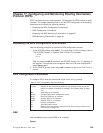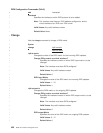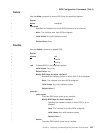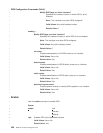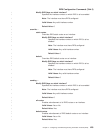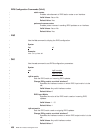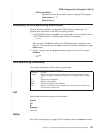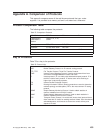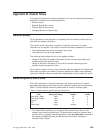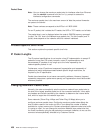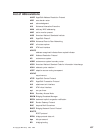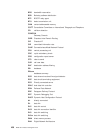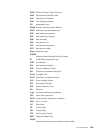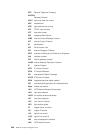
Appendix A. Comparison of Protocols
This appendix compares some of the well-known protocols that your router
supports. It is provided as a memory aid and is not meant as a reference.
Protocol Comparison Table
The following table compares the protocols.
Table 75. Comparison Protocols
ISO OSI Model TCP/IP IPX Other
7 Application 6
Presentation 5
Session
Telnet, FTP, TFTP,
SGMP
4 Transport TCP, UDP PXP, SPX
3 Network IP, RIP, BGP, ICMP RIP, SAP
2 Data Link Local Net HDLC
1 Physical
Key to Protocols
Table 76 is a key to the protocols.
Table 76. Protocol Key
Protocol Description
BGP Border Gateway Protocol. An IP external routing protocol.
FTP, TFTP File Transfer Protocol; Trivial File Transfer Protocol.
ICMP Internet Control Message Protocol. Used to send network level error
and control messages between routers and hosts.
IP Internet protocol. IP is a widely used standard transport protocol. IP is
the 2210 routers’ basic protocol. IP leaves some error-checking to
higher-level (end-to-end) protocols.
IPX Internet Packet Exchange Protocol.
RIP Routing Information Protocol (Routing protocols are used to determine
network topology and data paths). RIP is the most common IP routing
protocol.
SGMP Simple Gateway Monitoring Protocol. Used to obtain statistics in
machine-readable form from 2210 routers.
SNMP Simple Network Management Protocol. Used to obtain statistics in
machine-readable form from 2210 routers.
TCP Transport Control Protocol. An end-to-end (host-to-host) protocol that is
often used with IP. Useful for sending streams of data. Uses checksums,
acknowledgments, and timeouts to ensure the correct delivery and
sequence of data.
© Copyright IBM Corp. 1994, 1998 433



